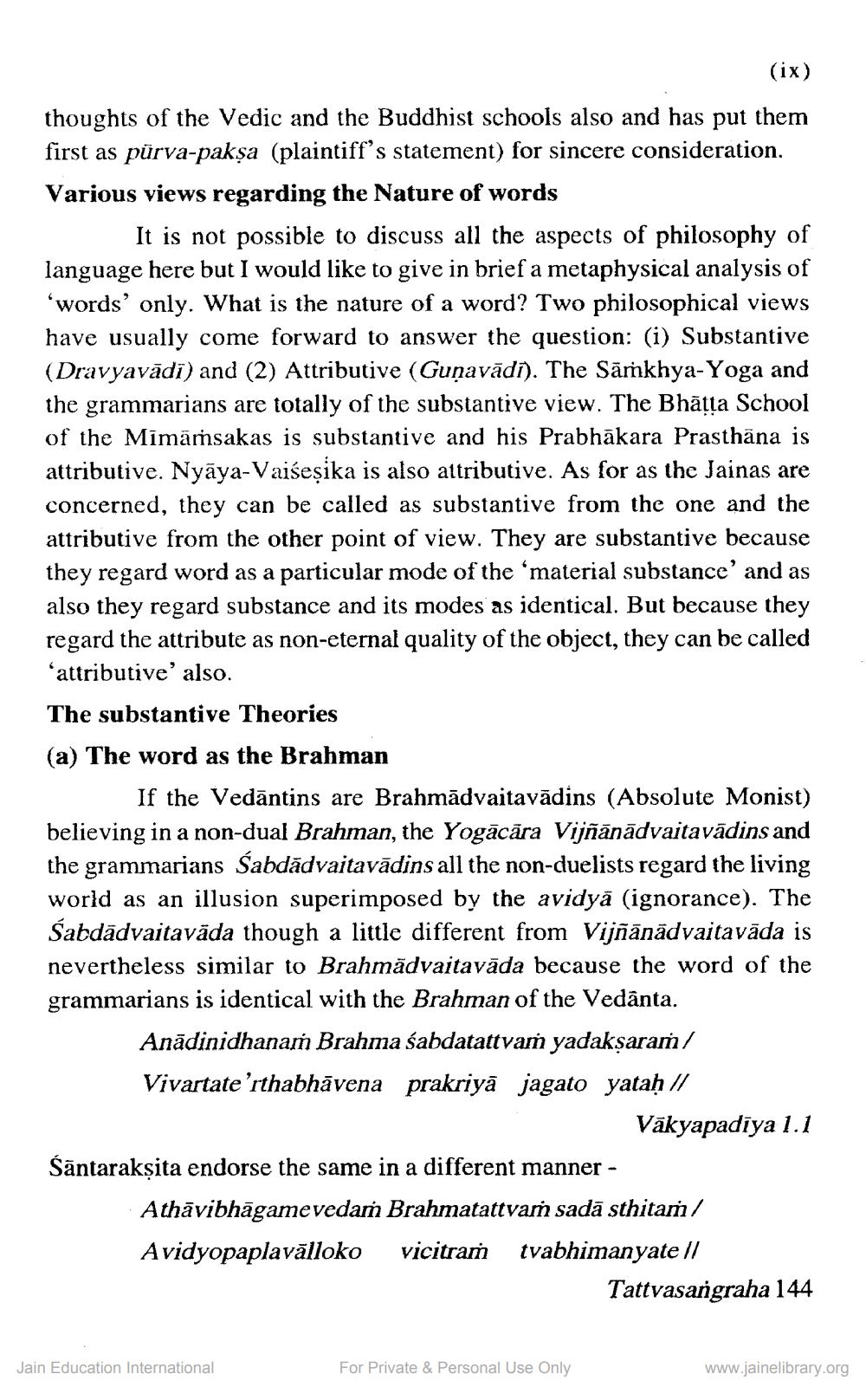________________
(ix)
thoughts of the Vedic and the Buddhist schools also and has put them first as purva-paksa (plaintiff's statement) for sincere consideration. Various views regarding the Nature of words
It is not possible to discuss all the aspects of philosophy of language here but I would like to give in brief a metaphysical analysis of 'words' only. What is the nature of a word? Two philosophical views have usually come forward to answer the question: (i) Substantive (Dravyavādī) and (2) Attributive (Guņavādi). The Sārkhya-Yoga and the grammarians are totally of the substantive view. The Bhāļļa School of the Mimärsakas is substantive and his Prabhākara Prasthāna is attributive. Nyāya-Vaišeșika is also attributive. As for as the Jainas are concerned, they can be called as substantive from the one and the attributive from the other point of view. They are substantive because they regard word as a particular mode of the 'material substance' and as also they regard substance and its modes as identical. But because they regard the attribute as non-eternal quality of the object, they can be called 'attributive' also. The substantive Theories (a) The word as the Brahman
If the Vedāntins are Brahmādvaitavādins (Absolute Monist) believing in a non-dual Brahman, the Yogācāra Vijñānādvaitavādins and the grammarians Sabdădvaitavādins all the non-duelists regard the living world as an illusion superimposed by the avidyā (ignorance). The Sabdādvaitavāda though a little different from Vijñānādvaitavāda is nevertheless similar to Brahmädvaitavāda because the word of the grammarians is identical with the Brahman of the Vedānta.
Anādinidhanam Brahma śabdatattvaṁ yadakşaraṁ/ Vivartate’rthabhāvena prakriyā jagato yataḥ //
Vākyapadiya 1.1 śāntarakṣita endorse the same in a different manner -
Athāvibhāgamevedar Brahmatattvar sadā sthitam/ Avidyopaplavālloko vicitraṁ tvabhimanyate //
Tattvasangraha 144
Jain Education International
For Private & Personal Use Only
www.jainelibrary.org




